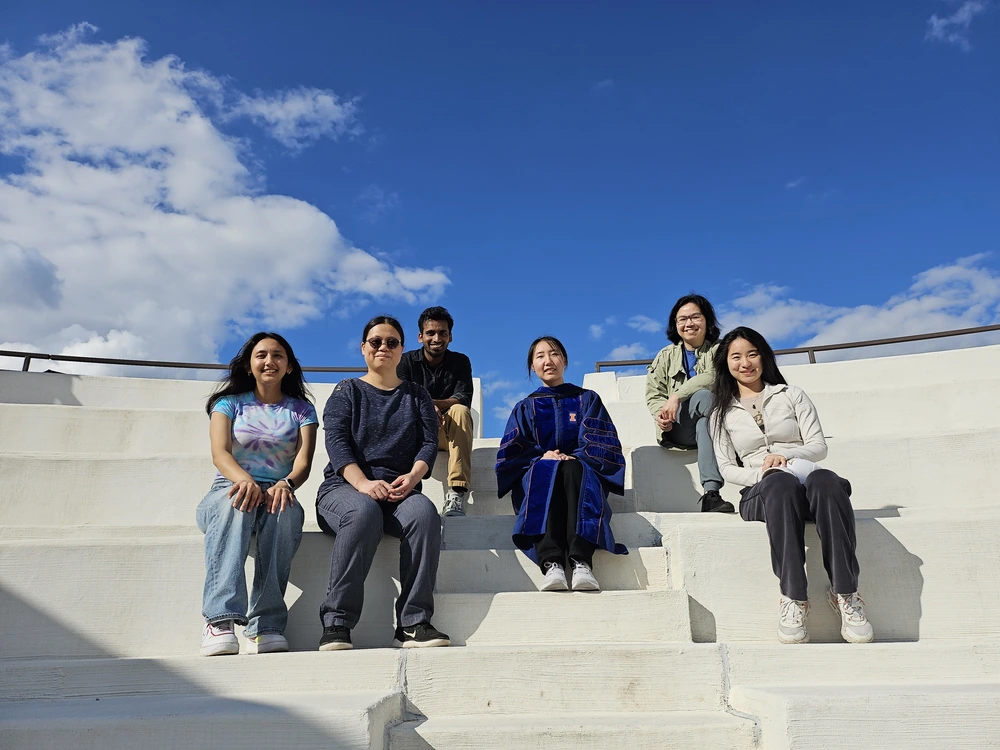
Established in 2015, the Oyetunji A. Toogun Memorial Award for Excellence in Research is an annual award named in honor of Tunji Toogun, a PhD student in the Department of Cell & Developmental Biology who passed away in 2007. The annual award recognizes CDB graduate students for their exceptional research accomplishments. The 2024 recipient of the Toogun Award is Hailun Zhu, a doctoral student working with Dr. Xin Li.
Tell us a little bit about your research at Illinois.
Our lab uses Drosophila — the common fruit fly — to study neurobiology. My project has focused on neural progenitors and their temporal patterning. These neural progenitors sequentially express different temporal transcription factors, or TTFs, and I’ve been working to understand their transcriptional regulation. Understanding the transcriptional regulation mechanisms involved in neural progenitors acquiring temporal identities could offer insights useful for reprogramming in cell replacement therapies.
The Toogun award recognizes CDB students with outstanding accomplishments who show great enthusiasm for research. What was your reaction to winning the 2024 award?
I was surprised to learn that Dr. Li had nominated me for the award; I was actually notified about it on the same day I finished the final version of my thesis. This experience has encouraged me to pursue a career in academia; after my postdoc, I hope to be a university faculty member.
Do you have advice for future School of MCB PhD students?
As researchers, we generate ideas by reading lots of papers. It’s easy to corner yourself by only reading things that are directly related to your research, but finding literature outside of that narrow scope can give you a broader view of where your project stands in the larger field of biology. And that can help generate better ideas overall.
What legacy do you hope to leave at Illinois?
I think the research I’ve conducted here can lay a good foundation for future graduate students or postdocs to further examine the regulation process. I’ve been working on a cascade of TTFs, and hopefully future students can build on what I’ve learned.
What’s next?
In June, I'll be relocating to Stanford University, where I'll start a postdoc in the lab of Dr. Kang Shen. His lab uses C. elegans as the model organism to study neurobiology. In Dr. Li’s lab, I've been concentrating on neural progenitors that give rise to neurons. Now, I will focus on understanding how mature neurons function and communicate with each other to form neural circuits.